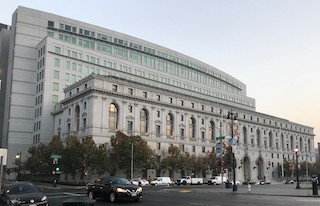In 2015, in Tulare County, law enforcement investigated the Norteño criminal street gang for their activities within the county. As part of the investigation, they surveilled certain high-ranking gang members and tapped their cellphones.
On August 24 and August 25, 2015, agents were watching and listening as several of the gang members planned two back-to-back home invasion robberies (also called first-degree robbery, when two or more people commit a robbery within an inhabited dwelling house or other habitation) to take place in Visalia.
Pedro Lopez, a member of a Norteño subset in Fresno County, agreed by phone and text message to help recruit for and participate in these robberies. In preparation, Lopez and other gang members procured cars, weapons and other equipment. They scoped out the locations they intended to target and planned a coordinated attack.
On the night of August 25, 2015, the group divided into two cars and set out toward the targeted homes. One gang member texted another, “We in motion. I’ll update you soon.” Moments later, police intervened and arrested five individuals, including Lopez.
A Tulare County jury found Lopez guilty of two counts of conspiracy to commit home invasion robbery (Penal Code §§ 182(a)(1), 211), criminal street gang conspiracy to commit home invasion robbery (Penal Code §§ 182.5 [criminal street gang conspiracy], 211), and attempted home invasion robbery (Penal Code §§ 664, 211). The jury also found all of these crimes to be gang-related within the meaning of Penal Code §§ 186.22(b)(1) and 186.22(b)(4) (“for the benefit of, at the direction of, or in association with a criminal street gang”).
The judge sentenced Lopez to an indeterminate term of 35 years to life for conspiracy to commit home invasion robbery, consecutive to a determinate term of 19 years for attempted home invasion robbery. The sentence for the conspiracy conviction consisted of 15 years to life as a so-called alternate penalty under Penal Code § 186.22(b)(4)(B), doubled for a prior strike, with an additional five years for a prior serious felony conviction under Penal Code § 667(a). All other counts and enhancements were stayed or ordered to be served concurrently.
Mr. Lopez appealed the sentence to the Fifth Appellate District in Fresno. The court of appeal reversed the second count of conspiracy for insufficient evidence. However, Lopez was unsuccessful in persuading the court of appeal that the trial court erred in sentencing him to an indeterminate life term on his conspiracy conviction under Penal Code § 186.22(b)(4).
While the court of appeal agreed with him that the language in that provision applies only to the enumerated offenses, which do not include conspiracy, it understood the California Supreme Court’s decision in People v. Athar (2005) 36 Cal.4th 396 to instruct that in a felony conspiracy case, a trial court ordinarily must apply all sentence enhancements or alternate penalties that would have applied to the completed offense.
 California Supreme Court San Francisco
California Supreme Court San Francisco
Lopez then appealed this ruling to the California Supreme Court, which agreed with Lopez that neither the conspiracy statute nor Athar requires an express statement forbidding imposition of sentence enhancements, alternate penalties, or other additional punishment to conspiracy convictions.
After all, the crime of conspiracy “is an inchoate offense, the essence of which is an agreement to commit an unlawful act.” People v. Johnson (2013) 57 Cal. 4th 250, 258. To commit the crime of conspiracy, one of conspirators must commit an overt act in furtherance of the agreement. But because “it is the agreement, not the overt act, which is punishable . . . the overt act need not amount to a criminal attempt and it need not be criminal itself.” Id., at 259.
It then discussed People v. Hernandez (2003) 30 Cal. 4th 835, where the California Supreme Court considered the punishment for conspiracy to commit murder. The defendant in that case had been convicted of both murder and conspiracy to commit murder, and the jury found true a special circumstance allegation that both the murder and the conspiracy to commit murder had been committed for financial gain. Id., at 864.
Based on “significant errors” in the penalty phase of the trial, the death sentence for the murder was vacated and defendant was sentenced to life without the possibility of parole on the conspiracy conviction. The Supreme Court then vacated that sentence, too, concluding that the special penal provision at issue – the special circumstance authorizing life without parole sentence – applied only to convictions for the completed crimes, not to convictions for conspiracy to commit murder. Id. at 878.
The California Supreme Court held, in other words, that it is enough if the relevant statutes reflect “a discernible intent” to reserve the additional punishment for completed crimes. Here, although Penal Code § 186.22(b)(4) does not say so expressly, the most natural reading of the provision reflects such an intent.
Since Lopez was convicted of conspiracy to commit home invasion robbery and not the completed crime, the Supreme Court reversed the judgement of the Fifth District Court of Appeal and remanded Lopez’s case for resentencing.
The citation for the California Supreme Court ruling discussed above is People v. Pedro Lopez (2022) 12 Cal. 5th 957, 292 Cal. Rptr. 3d 265, 507 P. 3d 925.
For more information about Assembly Bill (AB 333), the sentencing enhancement for criminal street gang involvement and conspiracy, please click on the following articles:
 California Supreme Court San Francisco
California Supreme Court San Francisco